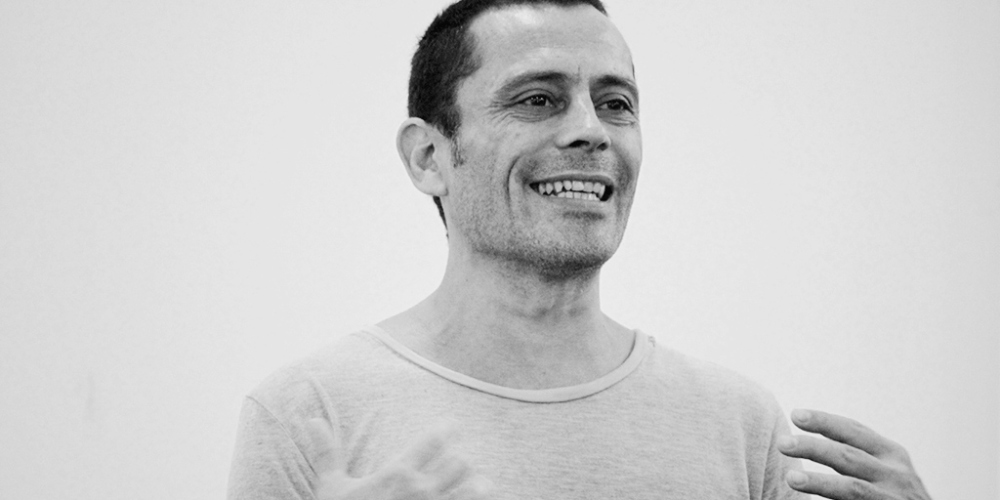
Actor, director and teacher, Guillermo Angelelli studied drama at the National School of Dramatic Arts in Buenos Aires (Argentina) and continued his training with teachers such as Carlos Gandolfo and Cristina Moreira.
He was one of the founders of Clu del Claun, a pioneering group that defied tradition in the 1980s and gained legendary status in Buenos Aires. In 1986, he began to develop training and research work with Iben Nagel Rassmusen of Denmark’s Odin Teatret, and is now a member of the Vindenes Bro Group (The Bridge of Winds) managed by Rassmusen.
Guillermo has been teaching since 1986 in drama institutions and at workshops, focusing on clowning, physical and vocal training in Argentina and other parts of Latin America, as well as Europe.
He has won many awards for his work in theatre including the Harlequin Award for Best Actor and Director for Asterion (1992), GATEA Award and Maria Guerrero Award for Best Actor for The Threepenny Opera (2004) and Hamlet (2004), and Maria Guerrero Award for Best Actor in Woyzeck (2006).
This March, he directs and co-creates Simplicity together with our graduating class. Inspired by the eponymous poem written by Jorge Luis Borges, Simplicity plays at the Drama Centre from 17 – 19 March 2016.
For more information, visit simplicity.peatix.com
Q: What were your motivations for choosing Simplicity – the poem – as the start point of this play?
It’s not just his [Jorge Luis Borges] words, but also his concept, of palimpsest that appeals to me. This “worked on” idea is something that I will incorporate when creating with the students.
It is a kind of recycling – using old materials and giving them new meaning. Jorge’s words will still be in the play, but they will also form a base to build the work up from.
I would like to incorporate into the play the training the students have been working from – such as Noh – but changing it, to use its principles to build a new thing. These forms are very codified, but it’s how to use these codes to make new things – that’s the idea.
Q: More than actors, they will be co-creators. What does that role mean?
We will not begin from the story, but will arrive at it instead.
That will be the difference for the graduating class – that they work not just as actors, but as creators as well – it is something they have to do, after graduation from here [ITI].
It is important – this independent way of creating your material, and not to always be waiting for other people’s materials and running after auditions.
As their first Final-Year Production for 2016, it is a good start for them to begin this way – it is their transition between being just a student to a professional actor.
Sometimes, people mistake the idea of complexity as something interesting…
Q: What do you personally find appealing in the concept of simplicity?
Sometimes, people mistake the idea of complexity as something interesting, but in simplicity – the sun setting, or watching the sea – that simple scene is alive and strong. Elaboration will come through the process, but if we can build something simple, strong, powerful – that will be more than spectacle.